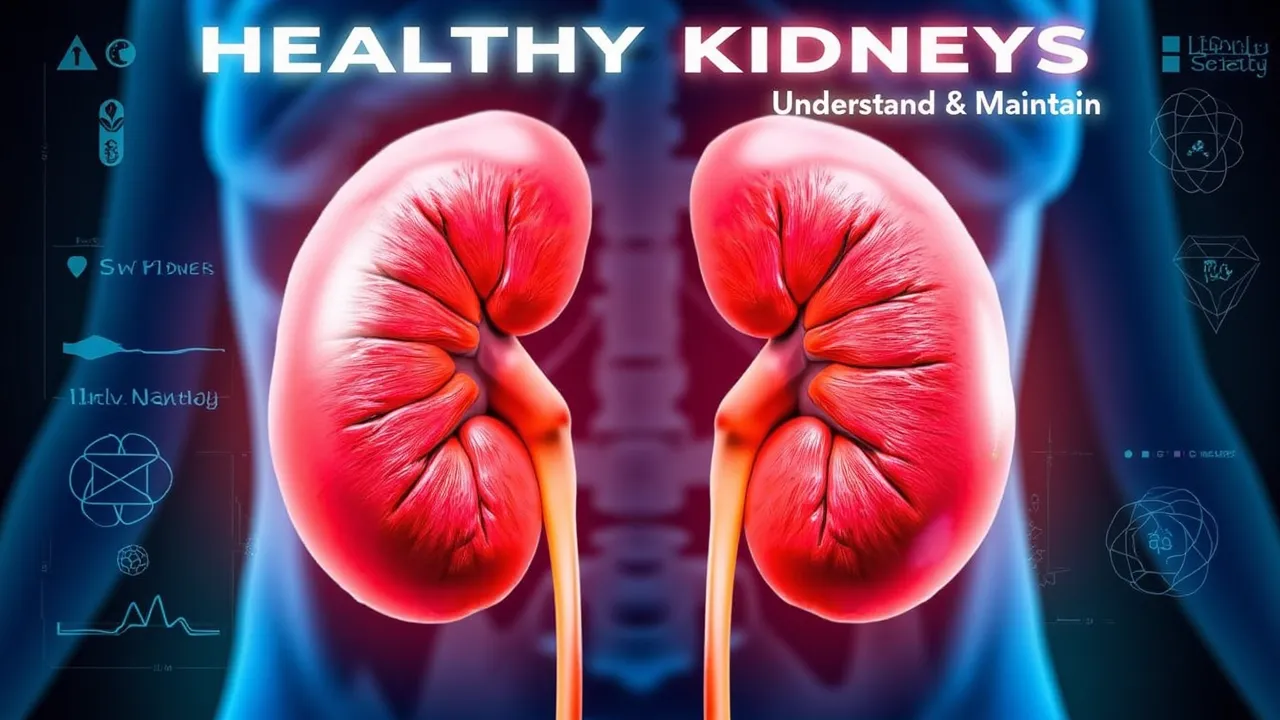Your kidneys work 24/7 to filter toxins, balance fluids, and support vital functions. Here’s how you can keep them healthy starting today.
🥦 Eat Kidney-Friendly Foods First
User intent: What should I eat to protect my kidneys?
To support kidney health, eat a balanced, nu
Your kidneys work 24/7 to filter toxins, balance fluids, and support vital functions. Here’s how you can keep them healthy starting today.
🥦 Eat Kidney-Friendly Foods First
User intent: What should I eat to protect my kidneys?
To support kidney health, eat a balanced, nutrient-rich diet low in sodium and added sugars. Your food choices directly affect how hard your kidneys work.
Top kidney-friendly foods:
- Leafy greens (spinach, kale)
- Red bell peppers
- Apples and berries
- Olive oil
- Cauliflower and cabbage
Avoid or limit:
- Processed meats
- Canned soups
- Fast food
- Cola and packaged snacks
Pro Tip (AI-driven): Use a grocery list app with kidney-friendly food filters to simplify healthy shopping.
💧 Hydration: Not Too Much, Just Right
User intent: How much water should I drink for kidney health?
Drinking enough but not excessive water helps your kidneys flush out toxins. Aim for 6–8 cups per day, adjusting based on activity, climate, and your doctor’s advice.
Hydration tips:
- Start your morning with a glass of water
- Carry a reusable water bottle
- Add lemon or cucumber for flavor without added sugar
Quick Fact: Overhydration can strain kidneys, especially in those with kidney disease.
🚶♂️ Stay Active, Stay Filtered
User intent: Can exercise improve kidney health?
Yes! Regular physical activity helps manage blood pressure and blood sugar—two major risk factors for kidney disease. Aim for 30 minutes a day, 5 times a week.
Kidney-friendly workouts:
- Walking
- Yoga or stretching
- Cycling
- Swimming
Motivation hack: Set reminders and track progress with fitness apps.
🧂 Cut Back on Salt & Processed Foods
User intent: Why is salt bad for kidneys?
Too much sodium can raise blood pressure and damage kidney blood vessels over time. The American Heart Association recommends less than 2,300 mg per day.
Swap ideas:
| Unhealthy | Healthier Swap |
|---|---|
| Table salt | Herbs and lemon juice |
| Canned soup | Homemade veggie broth |
| Fast food | Meal-prepped bowls |
Read labels: Look for “low sodium” and avoid anything over 20% DV per serving.
🩺 Monitor Blood Pressure and Sugar Levels
User intent: What health checks protect my kidneys?
High blood pressure and diabetes are top causes of chronic kidney disease. Early detection and control are essential.
What to monitor:
- Blood Pressure: Ideal is below 120/80 mmHg
- Blood Sugar (A1C): Keep in the range your doctor recommends
AI Insight: Smartwatches and apps can help you track trends and share data with your provider.
🚭 Avoid Smoking & Limit Alcohol
User intent: Do lifestyle habits affect kidneys?
Absolutely. Smoking reduces blood flow to the kidneys, while excessive alcohol raises blood pressure and causes dehydration—both risk factors.
How to reduce risks:
- Join a smoking cessation group
- Limit alcohol to 1–2 drinks/day max
- Replace with sparkling water or mocktails
💊 Be Careful with Medications & Supplements
User intent: Can medications harm kidneys?
Yes. Overuse of NSAIDs (like ibuprofen) and certain supplements can strain kidneys. Always read labels and consult your doctor.
Safe practices:
- Avoid long-term use of OTC painkillers
- Check for kidney warnings on labels
- Tell your provider about all supplements
Note: Natural doesn’t always mean safe for kidneys.
🧬 Get Screened if You’re at Risk
User intent: Should I be screened for kidney disease?
If you have diabetes, high blood pressure, or a family history of kidney disease, screening is essential. Early CKD often has no symptoms.
Ask your doctor about:
- Urine albumin-to-creatinine ratio (uACR)
- Estimated glomerular filtration rate (eGFR)
Early detection means early protection.
📊 Chart: Healthy Habits vs. Kidney Risk
| Habit | Kidney Benefit | Risk if Ignored |
|---|---|---|
| Eating clean | Reduces toxin load | High BP, obesity |
| Staying hydrated | Flushes toxins | Dehydration |
| Regular exercise | Balances weight & sugar | Risk of CKD |
| Quitting smoking | Improves blood flow | Faster kidney damage |
| Monitoring BP & sugar | Prevents damage | Silent progression |
✅ Summary: Quick Tips to Protect Your Kidneys
- Eat fresh, whole foods with less salt and sugar
- Stay active and maintain a healthy weight
- Keep blood pressure and sugar under control
- Avoid smoking and limit alcohol
- Stay hydrated without overdoing it
- Be careful with OTC drugs and supplements
- Get screened regularly if at risk
🙋♂️ Frequently Asked Questions
Swelling in feet/ankles, fatigue, frequent urination, or foamy urine. Always consult a healthcare provider.
Early stages (CKD 1–2) can often be managed or slowed through lifestyle changes and medical care.
Water is #1. Unsweetened herbal teas and cranberry juice (in moderation) can also support kidney function.

